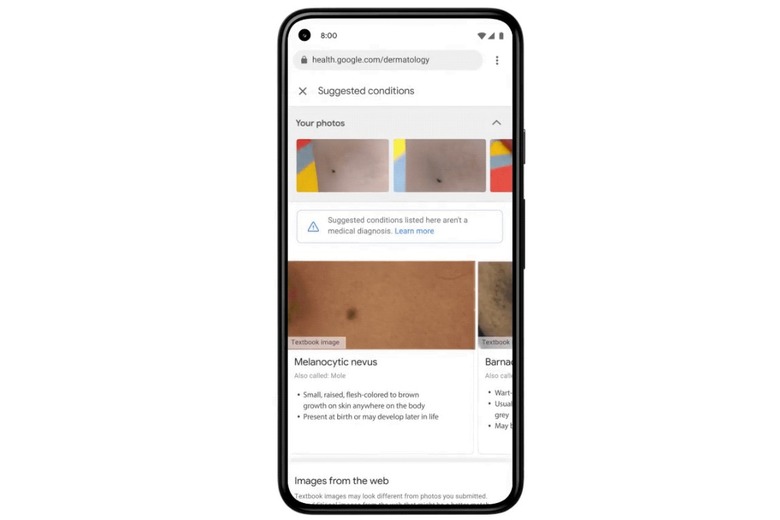Google Previews AI-Powered App For Diagnosing Skin Conditions
Yesterday at Google I/O, the company previewed an AI-powered app meant to help diagnose dermatological issues to help people understand challenges with their skin, hair, and nails. Doctor Peggy Bui, MD, product manager for Google Health, says that the app uses the same techniques to help doctors detect diabetic eye disease or lung cancer in CT scans. The app allows users to get a more accurate diagnosis for dermatologic issues like rashes on their skin using the camera on their smartphone.Google says there are almost 10 billion searches related to skin, nails, and hair issues each year. Globally, about 2 billion people face issues with skin, nails, or hair, and for many, the search for a diagnosis begins on Google using keywords. The AI-powered dermatology assist tool is a web-based application that Google aims to launch as a pilot later this year to help diagnose issues with the skin.
The tool requires users to take three images of the skin, hair, or nail concern from different angles. It asks a series of questions about skin type, how long they've had the issue, and other symptoms to help arrive at a potential diagnosis. The AI app analyzes information and uses it to compare to its knowledge base of 288 conditions to generate a list of possible matches that can be searched for more information.

For each of the matching conditions, the tool provides users with dermatologist-reviewed information and answers to commonly asked questions along with matching images from the web. Google is clear that the tool is not intended to provide a diagnosis or substitute for medical advice from qualified clinicians.
Google notes that many skin conditions will require clinical review, in-person examination, or additional testing like a biopsy. The search giant does hope the tool gives users access to authoritative information, helping them make informed decisions about the next step in treating their condition. The model does account for multiple factors, including age, sex, race, and skin types. It was also fine-tuned with de-identified data encompassing around 65,000 images and case data of diagnosed skin conditions from across all demographics. Those interested in the tool can sign up here to be notified when it's available.
